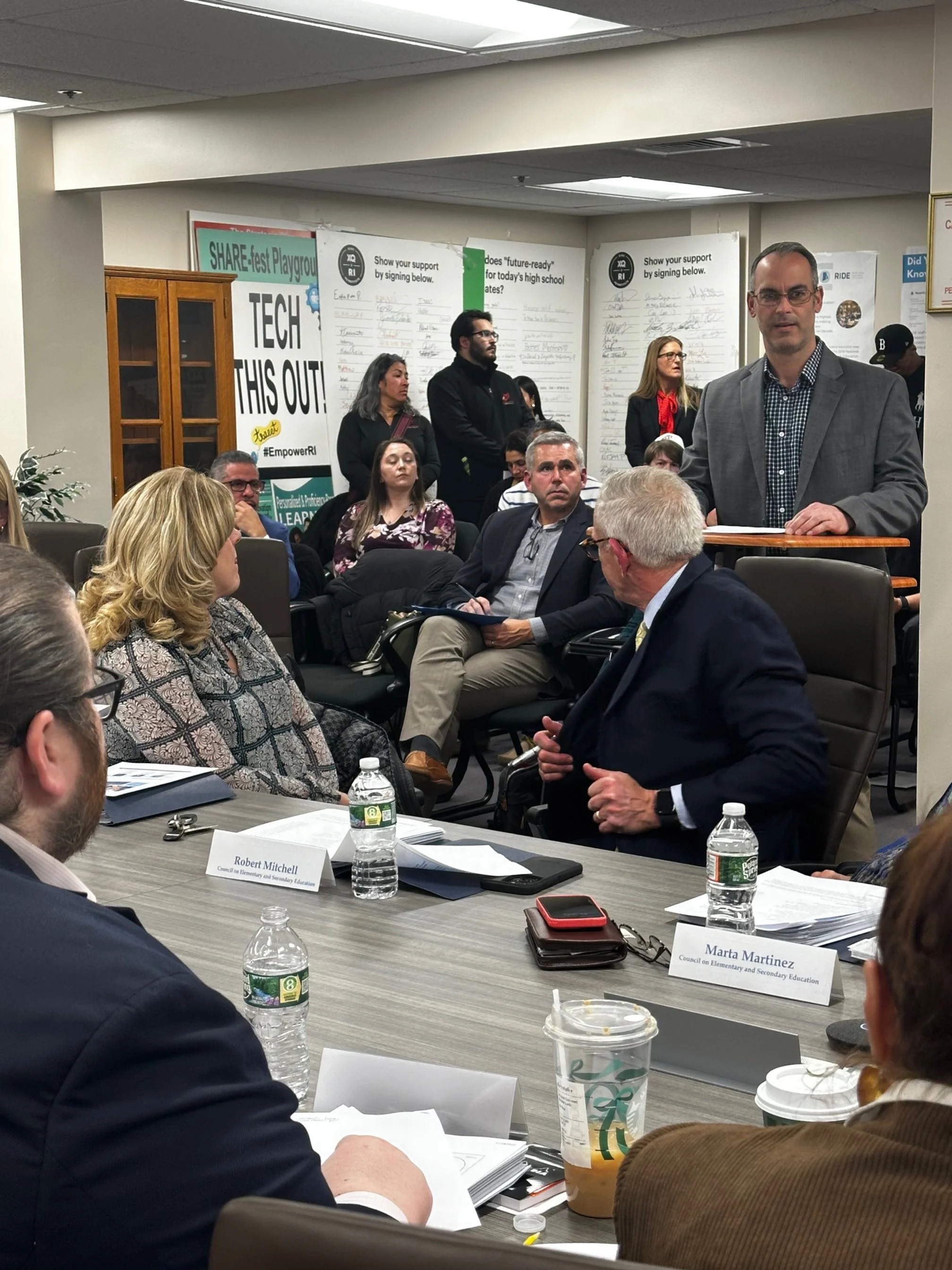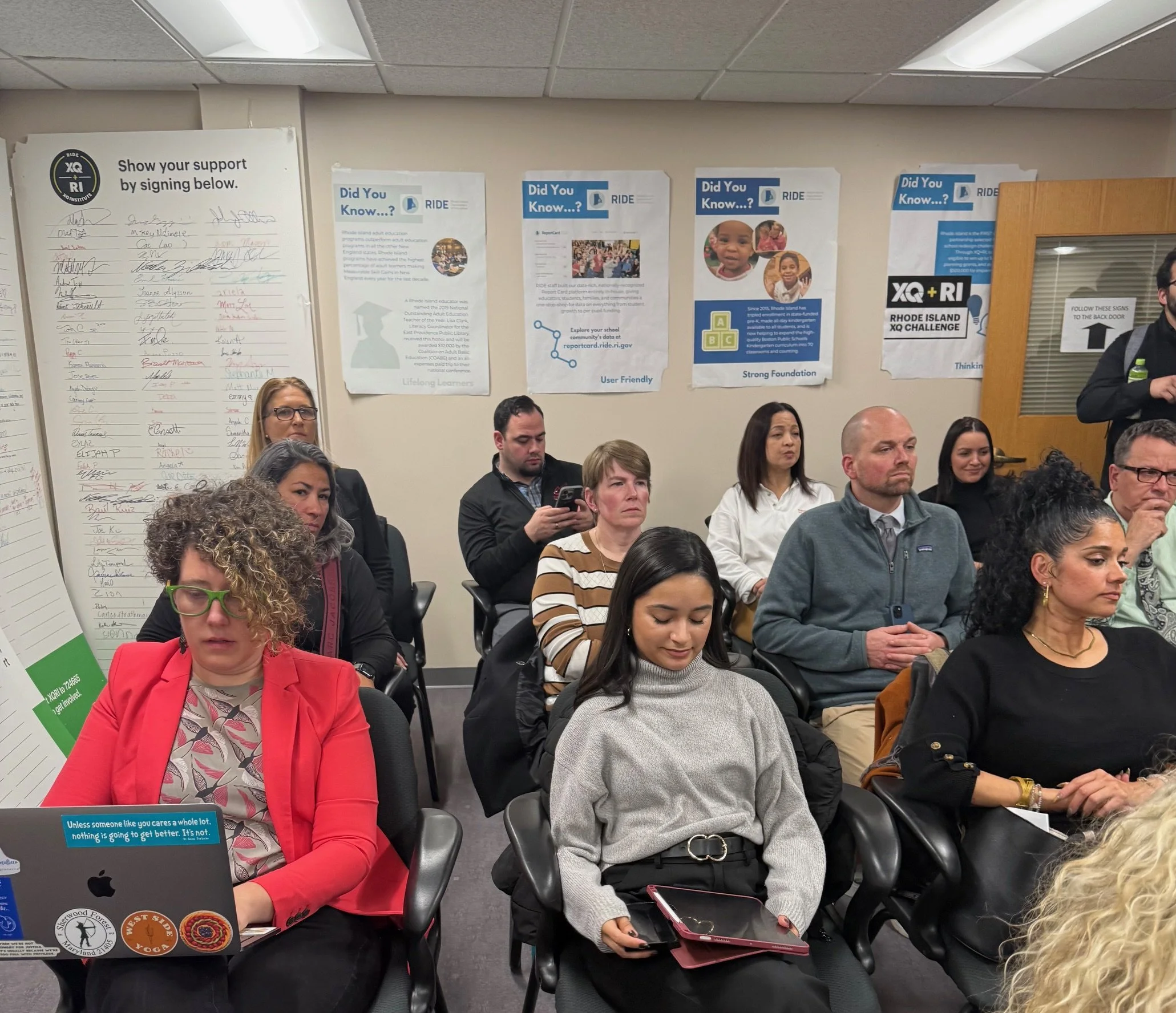Public Overwhelmingly Supports Approval of De La Comunidad and New England Tech Academy Charter Public Schools
Families, educators, and industry leaders urge the Rhode Island Council on Elementary and Secondary Education to approve new schools
Providence, RI — Families, educators, students, and community partners attended Tuesday night’s Council on Elementary and Secondary Education meeting, demonstrating overwhelming support for two proposed charter public schools: De La Comunidad Bilingual School (DLC-B) and New England Technical Academy (NETA). Testimony throughout the evening highlighted the urgent need for high-quality, mission-driven public school options that reflect the diverse academic, linguistic, and economic needs of Rhode Island students.
“Tuesday night’s meeting made it clear that Rhode Islanders are united in their call for stronger, more diverse educational pathways. With powerful community momentum behind both proposals, the December 16 vote represents a pivotal moment for the future of public education in the state,“ said Victor Capellan, founder and CEO of Rhode Island Collective, which helped design the two new schools. “The Council now has the chance to open those doors for thousands of students who cannot afford to wait.”
Supporters of De La Comunidad Bilingual School emphasized the school’s vision as a K–12 dual-language, full-service community school serving Providence, Pawtucket, and Cranston. The proposed model prepares students to graduate biliterate, college-ready, and community-minded through rigorous academics, two-way bilingual instruction, and comprehensive family supports. Speakers emphasized the school’s dedication to celebrating students’ identities and cultures and providing families with educational options that honor and elevate who their children are.
“Dual-language education is about more than just speaking two languages. It builds stronger cognitive skills, prepares students for a global economy, and helps them succeed academically,” said Madalyn Ciampi, Executive Director of Providence Promise and sponsoring entity for De La Comunidad Bilingual school. “De la Comunidad Bilingual will have a tremendous impact on the communities it will serve by preparing its students to graduate biliterate and ready to lead in their communities and beyond. This unique model will close key gaps in our State’s educational landscape with its dual language programming and integrated support services for students and their families.”
The Council also heard strong support for New England Technical Academy, an early-college, career and technical education (CTE) charter public high school designed to expand access to high-demand fields, including robotics, drone technology, information technology, and health sciences. Backed by major industry leaders and sponsored by the New England Institute of Technology, NETA will blend rigorous academics with hands-on, industry-aligned training, enabling students to earn both industry credentials and up to one full year of college credit.
"Recently, I visited the New England Institute of Technology and saw the labs where NETA students will learn. And I immediately pictured my students, many with disabilities, finally thriving through hands-on experiences that match their strengths,” said Arlette Hildalgo, parent and special educator. “If I can see that vision, imagine what this will mean for our families who have been waiting for a school that understands their children’s needs.”
Together, the proposals have already generated more than 3,500 letters of support and 50 endorsements from industry and community partners across the state.
The Council on Elementary and Secondary Education is scheduled to vote on both DLC-B and NETA on December 16. If approved, NETA is slated to open in Providence in fall 2026 with 144 ninth graders, growing to serve 576 students by 2030. DLC-B would open in fall 2027 with K–2 students and expand in the following years to serve grades K–12.



